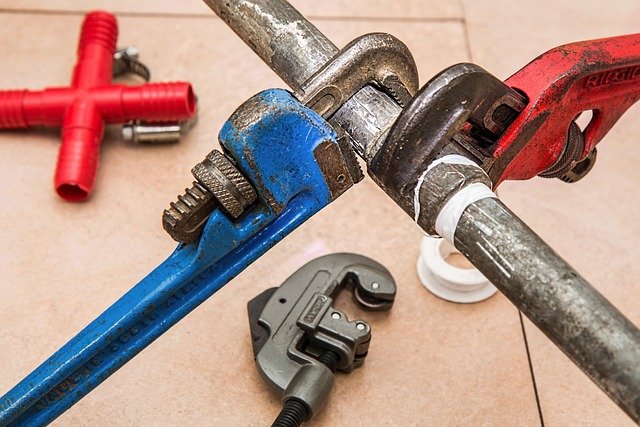Garage Floor Coatings: A Comprehensive Guide to Protective Options
Garage floor coatings represent one of the most practical home improvement investments, transforming bare concrete into durable, attractive surfaces that resist stains, chemicals, and wear. These specialized coatings not only enhance the appearance of garage floors but also extend their lifespan by providing a protective barrier against oils, fluids, and physical damage. Whether homeowners are looking to create a professional-looking workspace or simply protect their concrete investment, understanding the various coating options, application methods, and cost considerations can help make informed decisions about this valuable upgrade.

Understanding Floor Coatings for Concrete
Concrete floors, while durable, are naturally porous surfaces that absorb spills and stains easily. Floor coatings for concrete create a protective layer that seals these pores, preventing absorption of automotive fluids, chemicals, and moisture. The primary types of concrete floor coatings include epoxy, polyurethane, polyaspartic, and acrylic sealers. Each offers different levels of protection, durability, and aesthetic options. Epoxy provides excellent chemical resistance and durability, while polyurethane offers superior UV resistance. Polyaspartic coatings cure quickly and work well in temperature extremes, while acrylic sealers provide basic protection at a lower cost point. The right choice depends on specific needs, climate conditions, and budget constraints.
Selecting the Ideal Floor Coating for Garage Applications
Garage environments present unique challenges for flooring materials. A proper floor coating for garage spaces must withstand hot tire pick-up (when tires transfer heat to the coating), chemical spills, abrasion from tools and equipment, and potential moisture issues. Epoxy remains the most popular choice due to its excellent adhesion to concrete and impressive durability. However, hybrid systems that combine epoxy with polyurethane or polyaspartic top coats often deliver superior performance. These combination systems leverage epoxy’s bonding properties with the enhanced wear resistance and flexibility of polyurethane or the rapid curing benefits of polyaspartic materials. Color chips, quartz aggregates, or metallic pigments can be incorporated for decorative appeal while maintaining functionality.
Epoxy Garage Floor Cost Considerations
The cost of epoxy garage floor coatings varies significantly based on several factors. DIY epoxy kits typically range from $0.50 to $4 per square foot, while professional installation ranges from $3 to $12 per square foot depending on the system complexity. Single-layer, water-based epoxy represents the most economical option but offers limited durability. Solid 100% epoxy systems cost more but provide superior performance and longevity. The most expensive options include decorative elements such as metallic finishes, custom color blends, or embedded designs.
| Epoxy System Type | Average Cost per Sq Ft (Materials) | Professional Installation (Total) | Expected Lifespan |
|---|---|---|---|
| Water-based DIY Kit | $0.50-$2.00 | $3-$5 | 2-3 years |
| Solid Epoxy System | $2.00-$4.00 | $5-$9 | 5-10 years |
| Premium Decorative Epoxy | $4.00-$7.00 | $8-$12 | 10-20 years |
| Industrial-Grade Systems | $5.00-$9.00 | $9-$15 | 15-20+ years |
Prices, rates, or cost estimates mentioned in this article are based on the latest available information but may change over time. Independent research is advised before making financial decisions.
Application Process for Epoxy Coating for Concrete
The application of epoxy coating for concrete requires careful preparation to ensure proper adhesion and longevity. The process typically begins with thorough cleaning and degreasing of the concrete surface. Next, mechanical preparation through grinding, shot blasting, or acid etching opens the concrete pores for better adhesion. After preparation, a primer coat is applied to ensure the epoxy bonds properly with the concrete. The main epoxy coating follows, often applied in multiple layers depending on the desired thickness and durability. For enhanced performance, a topcoat (often polyurethane or polyaspartic) provides additional protection against scratches, UV damage, and chemicals. The entire curing process can take anywhere from 24 hours to several days, depending on the specific products used and environmental conditions.
Maintenance and Longevity of Garage Floor Coatings
Properly installed garage floor coatings can last anywhere from 5 to 20+ years with appropriate maintenance. Regular care includes prompt cleaning of spills, avoiding dragging heavy objects across the surface, and periodic cleaning with pH-neutral cleaners. For high-traffic areas, an annual application of a sacrificial wax or polish can extend the coating’s life by providing an additional protective layer. Signs that a coating may need reapplication include visible wear patterns, cracking, peeling, or areas where the concrete becomes exposed. Most quality coatings can be refreshed with a new topcoat rather than requiring complete removal and reapplication, making long-term maintenance more manageable and cost-effective.
Comparing Professional Installation vs. DIY Application
While DIY garage floor coating kits offer significant cost savings, professional installation provides several advantages. Professional contractors bring specialized equipment for proper concrete preparation, expertise in identifying and addressing concrete issues before coating, and access to commercial-grade products not available to consumers. Professional epoxy applications typically include diamond grinding or shot blasting preparation methods that create optimal adhesion, whereas DIY kits often rely on acid etching, which may not be as effective for all concrete surfaces. The expertise in mixing ratios, application thickness, and environmental considerations during application significantly impacts the coating’s longevity and performance. For homeowners with basic concrete in good condition, DIY applications can provide satisfactory results, while those with damaged concrete, moisture issues, or desires for premium finishes may benefit more from professional installation.
The transformation of a garage floor through quality coating applications enhances both the functionality and value of the space. By selecting appropriate materials based on specific needs and budget considerations, homeowners can enjoy durable, attractive garage floors that withstand the demands of automotive use, workshop activities, and general storage for many years to come.




